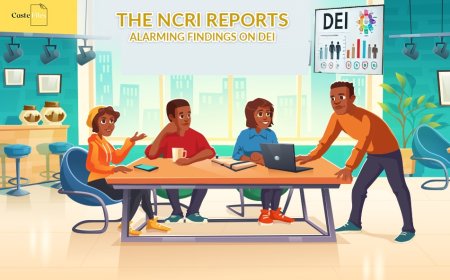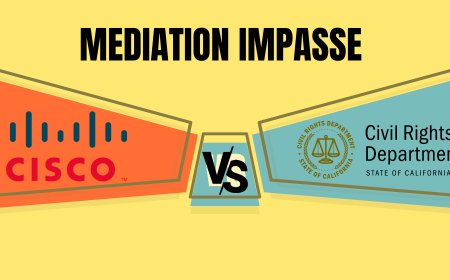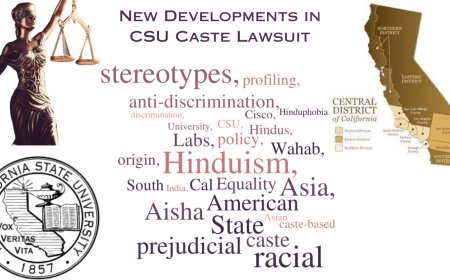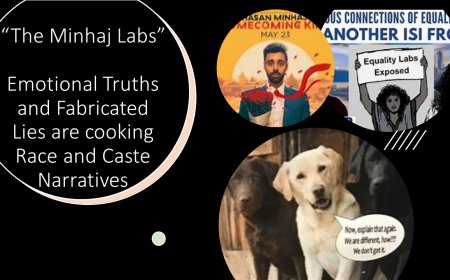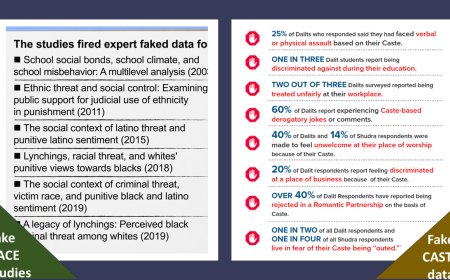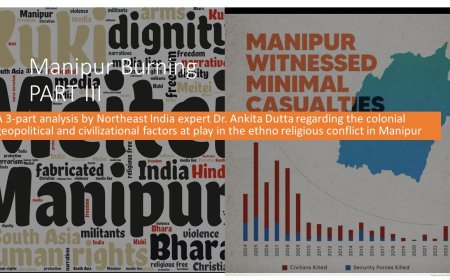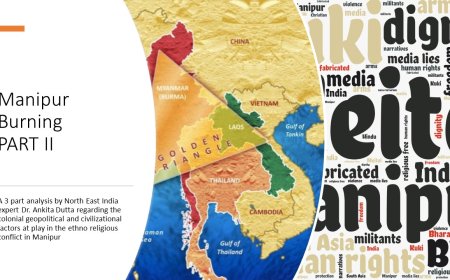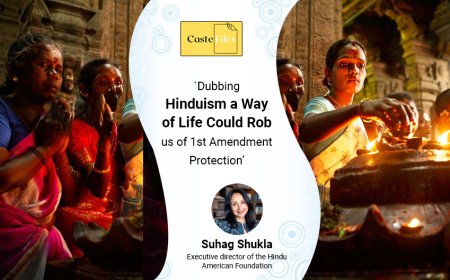Colonial Discourse and the Suffering of Indian American Children
A Francophone Postcolonial Analysis by Kundan Singh and Krishna Maheshwari, Colonial Discourse and the Suffering of Indian American Children has been published after academic peer review and is available through open access. This book delves into the psychological and social effects experienced by Indian American children when they encounter school textbook narratives on Hinduism and ancient India.
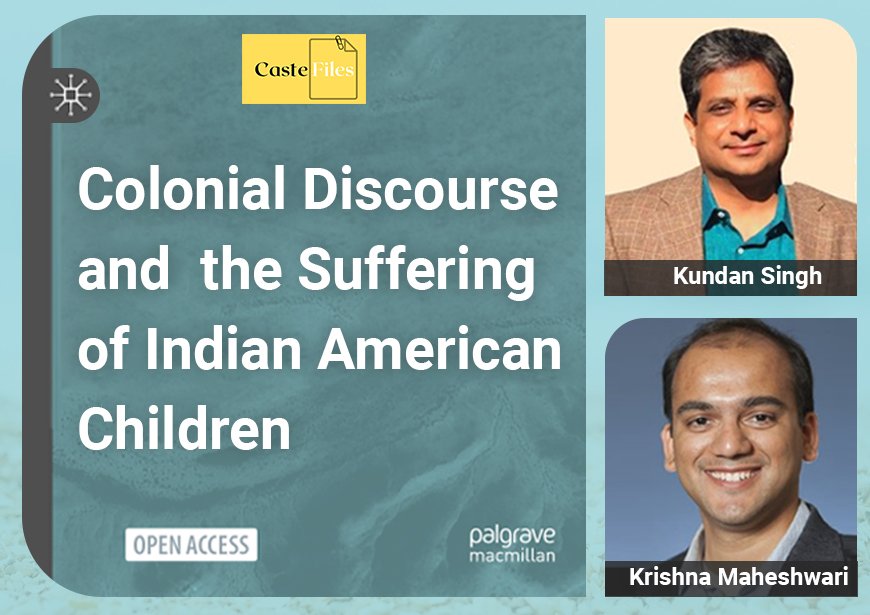
A Francophone Postcolonial Analysis By Kundan Singh and Krishna Maheshwari,
Palgrave Macmillan, (2024). https://doi.org/10.1007/978-3-031-57627-0
259 pp. ISBN 978-3-031-57626-3. ISBN 978-3-031-57627-0 (eBook). Open Access.
PDF and EPUB Available at: https://link.springer.com/book/10.1007/978-3-031-57627-0
Book Synopsis By Abhijit Bagal
Hindupedia, an organization focused on decolonizing academic discourse on Hindu Dharma, recently announced the publication of "Colonial Discourse and the Suffering of Indian American Children" by Prof. Kundan Singh, PhD, and Krishna Maheshwari. This peer-reviewed work, now available from Palgrave McMillan, examines Euro-American misrepresentations of non-Western cultures, particularly Hinduism and ancient India. The authors reveal striking similarities between James Mill's colonial-racist rhetoric and current school textbook narratives, exposing the persistence of colonial biases in modern education.
Colonial Discourse and the Suffering of Indian American Children has been published after academic peer review and is available through open access. This book delves into the psychological and social effects experienced by Indian American children when they encounter school textbook narratives on Hinduism and ancient India. It uncovers a deep-seated link, almost a mirror reflection, between the colonial-racist rhetoric of James Mill, a notable British politician and leader of the British East India Company, and the discourse found in current school textbooks. As a result, this outdated and discriminatory narrative, hidden behind a veil of political correctness, triggers in Indian American children the same psychological responses typically associated with racism: feelings of shame, inferiority, embarrassment, confusion about their identity, assimilation, and a tendency towards racelessness, leading the children to distance themselves from their ancestral traditions and culture.
This work results from four years of rigorous study by the authors, challenging academic depictions of Hindu Dharma. The authors expose the persistent colonial and racial prejudices that have shaped Western perceptions of Hinduism. They note a paradox: while Hindu practices like yoga and meditation gain popularity in the West, school textbooks continue to present a biased view of Hinduism.
Euro-American misunderstandings of non-Western cultures, particularly Hinduism and ancient India, have deeper colonial roots than are commonly acknowledged in academia. This research uncovers James Mill's fabrications and projections in his harmful rhetoric about Hindus and Hinduism. The authors demonstrate that Mill constructed his narrative on India, Hinduism, and Hindus to reflect British social and political issues he aimed to reform. This approach had far-reaching negative consequences for India and Hinduism.
The opening chapter traces the origins of Mill's prejudice against Hindus in his work "The History of British India," which harshly criticized India's history and culture. The authors examine how Western depictions misrepresent non-Western cultures, particularly Hinduism and ancient India. Their analysis reveals that these biases have more profound colonial origins than are typically recognized in academic discourse. Later chapters explore the psychological effects on Indian American children when exposed to these portrayals in their school textbooks.
The authors draw a striking parallel between Mill's colonial-racist views and contemporary American textbook portrayals of Hinduism and ancient India. Mill's interpretative framework still influences current descriptions of these subjects. This outdated and biased perspective, often presented under the guise of objectivity, negatively impacts Indian American children. The effects resemble those of racial discrimination: inducing shame, feelings of inferiority, identity confusion, pressure to conform, and alienation from cultural roots.
The book rightly argues for a change in how Hinduism and India are presented in textbooks to prevent Indian American children from being exposed to both overt and covert racism. The first step is acknowledging the pervasive influence of Mill's colonial views on these portrayals. The book deconstructs these biases to pave the way for a more accurate and respectful representation.
The authors' central argument—that textbook presentations of Ancient India and Hinduism, as mandated by Education Boards, lack objectivity—is likely to strike a chord with many readers. Colonization has fostered a worldwide dismissal of Ancient Indian and Hindu truths. Merely sanitizing overtly colonial and racist narratives fail to eliminate their typical effects. Indian American children exposed to these colonial-racist lessons face dual challenges. Externally, they encounter peer bullying, ridicule, mockery, and exclusion. Internally, they develop shame and embarrassment about their ancestral religion and culture. This influences their identity formation, often leading to reduced self-esteem.
Euro-American misrepresentations of non-Western cultures, especially Hinduism and ancient India, have deeper colonial roots than are typically acknowledged in academia. This outdated and racist perspective, often disguised as political correctness, affects Indian American children similarly to overt racism: inducing shame, feelings of inferiority, embarrassment, identity confusion, pressure to assimilate, and cultural disconnection from their heritage.
The authors have successfully presented their case for revising textbook portrayals of Hinduism and India to protect Indian American children from both explicit and implicit racism. They emphasize that recognizing Mill's enduring influence on these depictions is crucial. This book aims to pave the way for a more accurate and respectful representation by deconstructing these biases.



